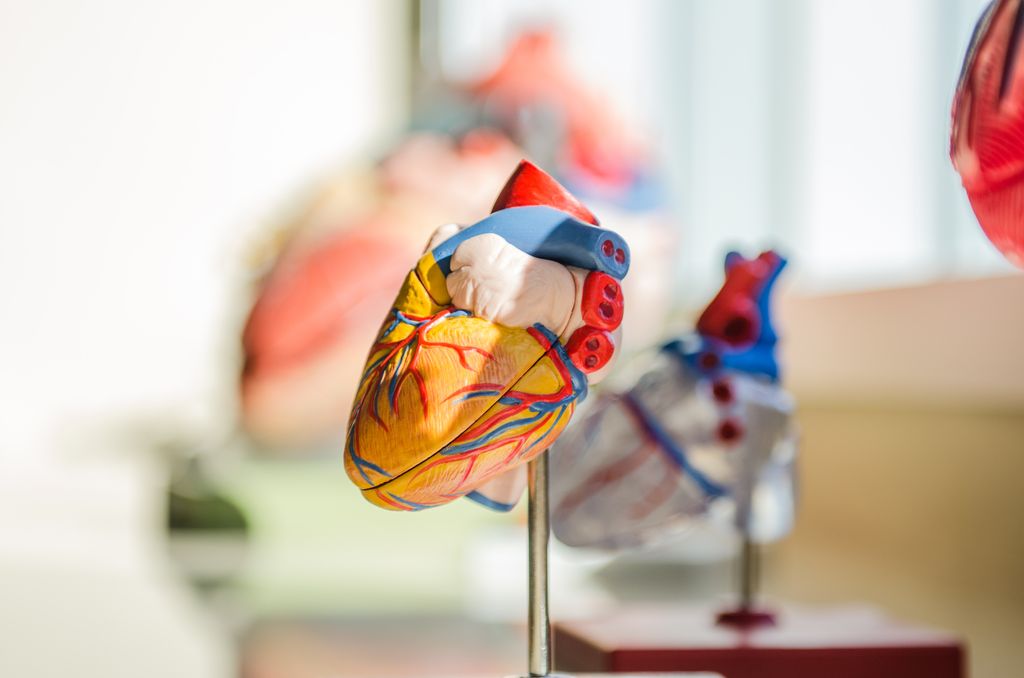The export of medical equipment is a crucial part of the healthcare industry, allowing countries to access the latest technologies and treatments. However, exporters often face challenges, such as delayed payments, which can have significant impacts on their operations. This article examines the diagnosis of delayed French payments in the medical equipment export sector, focusing on key players, trends, regulations, and case studies. By understanding the causes of delayed payments and implementing strategies to mitigate them, exporters can navigate the French market more effectively.
Key Takeaways
- Delayed payments are a common challenge faced by medical equipment exporters to France.
- Causes of delayed payments include bureaucratic processes, payment disputes, and economic factors.
- Delayed payments can have negative impacts on exporters, such as cash flow problems and strained relationships with suppliers.
- Exporters can mitigate delayed payments by establishing clear payment terms, conducting thorough due diligence on buyers, and diversifying their customer base.
- Case studies provide valuable insights into the experiences and approaches of companies dealing with delayed payments in medical equipment exports.
Overview of Medical Equipment Exports
Key Players in the Medical Equipment Export Industry
The medical equipment export industry is a highly competitive market with several key players. These companies are at the forefront of innovation and technology, constantly striving to develop and improve medical equipment that meets the needs of healthcare providers and patients. They play a crucial role in supplying medical equipment to hospitals, clinics, and other healthcare facilities around the world. With their extensive experience and expertise, these key players have established strong relationships with international buyers and distributors, enabling them to expand their reach and increase their market share.
Trends in Medical Equipment Exports
The medical equipment export industry is experiencing competitive rates of growth. With advancements in technology and increasing demand for healthcare services, the market for medical equipment is expanding rapidly. This growth is driven by factors such as the aging population, the rise in chronic diseases, and the need for advanced diagnostic and treatment options. As a result, medical equipment exporters are facing both opportunities and challenges in meeting the demand for innovative and high-quality products.
Challenges Faced by Medical Equipment Exporters
Exporting medical equipment can be a complex process with various challenges. International fashion and apparel trade is one such challenge that exporters need to navigate. The demand for medical equipment in France is influenced by the competitive landscape of the French market. Exporters must stay updated with the regulations and standards for medical equipment in France to ensure compliance. Additionally, delayed payments can pose significant challenges for exporters, impacting their cash flow and financial stability. It is crucial for exporters to have strategies in place to mitigate the risks associated with delayed payments.
French Market for Medical Equipment
Demand for Medical Equipment in France
The demand for medical equipment in France is growing steadily. With an aging population and increasing healthcare needs, the French market offers significant opportunities for medical equipment exporters. Innovative and high-quality medical devices are in high demand, particularly in areas such as diagnostics, surgical instruments, and patient monitoring. The French healthcare system emphasizes the importance of cutting-edge technology and advanced medical solutions to improve patient care and outcomes.
Regulations and Standards for Medical Equipment in France
When exporting medical equipment to France, it is crucial to comply with the regulations and standards set by the country. These regulations ensure the safety and effectiveness of the medical equipment being imported. The French government has established strict guidelines for the importation and use of medical equipment, which must be followed by exporters. Failure to comply with these regulations can result in delays in the import process and even legal consequences.
To export medical equipment to France, exporters must obtain the necessary certifications and approvals. These certifications demonstrate that the equipment meets the required quality and safety standards. Additionally, exporters must ensure that their products comply with the European Union (EU) regulations, as France is a member of the EU. This includes adhering to the CE marking requirements, which indicate that the product meets the EU’s health, safety, and environmental protection standards.
In addition to regulations, there are specific standards that medical equipment must meet in order to be imported into France. These standards cover various aspects such as quality, performance, and safety. It is important for exporters to thoroughly understand and comply with these standards to avoid any issues during the importation process.
-
Exporters should also be aware of any specific requirements for medical equipment in different regions of France. Certain regions may have additional regulations or standards that need to be met. It is essential to research and understand these requirements to ensure smooth export operations.
-
It is recommended for exporters to work closely with local partners or distributors who have knowledge and experience in the French market. These partners can provide valuable insights and guidance on navigating the regulations and standards for medical equipment exports to France.
Tip: Maintaining clear communication with the French authorities and staying updated on any changes in regulations or standards is crucial for successful medical equipment exports to France.
Competitive Landscape of the French Medical Equipment Market
The French medical equipment market is highly competitive, with a wide range of players vying for market share. Companies from various countries, including the United States, are actively involved in the US-France maritime equipment trade. This trade partnership plays a significant role in the growth and development of the French medical equipment industry. The market is characterized by constant innovation and technological advancements, with companies striving to offer cutting-edge solutions to meet the healthcare needs of the French population. It is a dynamic and evolving market that presents both opportunities and challenges for medical equipment exporters.
Delayed Payments in French Medical Equipment Exports
Causes of Delayed Payments in Medical Equipment Exports to France
Delayed payments in medical equipment exports to France can be attributed to several factors. One of the main causes is the complex regulatory environment in France, which includes stringent regulations and standards for medical equipment. This can lead to delays in the approval process and the importation of equipment. Additionally, the competitive landscape of the French medical equipment market plays a role, as it can result in price negotiations and contract disputes that delay payments. Another factor is the demand for medical equipment in France, which can fluctuate and impact the timing of payments. Finally, the impact of global events, such as the COVID-19 pandemic, can also contribute to delays in payments.
Impact of Delayed Payments on Exporters
Delayed payments in medical equipment exports to France can have a significant impact on exporters. Cash flow is severely affected when payments are delayed, making it difficult for exporters to meet their financial obligations. This can lead to liquidity problems and hinder the growth and expansion of their businesses. Exporters may also face challenges in managing their supply chain and fulfilling orders on time due to delayed payments. Additionally, delayed payments can strain relationships with suppliers and business partners, causing potential disruptions in the export process.
Strategies to Mitigate Delayed Payments
To mitigate the risk of delayed payments in medical equipment exports, exporters can implement the following strategies:
- Establish Clear Payment Terms: Clearly define payment terms in contracts to ensure both parties are aware of expectations.
- Perform Due Diligence: Conduct thorough research on potential buyers to assess their financial stability and payment history.
- Utilize Payment Guarantees: Request payment guarantees, such as letters of credit or bank guarantees, to secure payment.
- Diversify Customer Base: Expand customer base to reduce reliance on a single market or buyer.
- Monitor Payment Performance: Regularly monitor payment performance and promptly address any issues or delays.
- Maintain Strong Relationships: Cultivate strong relationships with buyers to encourage timely payments and open communication.
By implementing these strategies, exporters can minimize the impact of delayed payments and ensure a smoother export process.
Case Studies: Delayed Payments in Medical Equipment Exports
Case Study 1: XYZ Company’s Experience with Delayed Payments
XYZ Company, a medical equipment exporter, faced the challenge of non-payment from their French clients. Despite delivering the equipment on time and meeting all contractual obligations, XYZ Company experienced delays in receiving payment. This situation put a strain on their cash flow and affected their ability to invest in new projects and expand their business.
To address this issue, XYZ Company implemented several strategies:
- Maintaining strong communication with their French clients to ensure clarity on payment terms and expectations.
- Utilizing a third-party collection partner to handle distressed accounts and prevent write-offs.
- Taking legal action when necessary to enforce payment obligations.
XYZ Company’s experience highlights the importance of proactive measures to mitigate the risk of delayed payments in the medical equipment export industry. By implementing these strategies, exporters can safeguard their financial stability and maintain healthy business relationships.
Case Study 2: ABC Corporation’s Approach to Overcoming Delayed Payments
ABC Corporation has implemented a strategic approach to address the issue of delayed payments in their medical equipment exports to France. They understand the importance of settling accounts in a timely manner to maintain a healthy cash flow. To achieve this, ABC Corporation has partnered with a reliable third-party collection agency that specializes in debt recovery. This partnership ensures that distressed accounts are effectively managed and prevents them from becoming write-offs.
ABC Corporation’s collection partner employs a skilled team that is dedicated to maximizing the performance of distressed accounts receivable. They utilize various strategies such as daily phone calls, demand letters, skip tracing, settlement negotiations, and dispute resolution to expedite the payment process. By making daily attempts to contact debtors for the first 30 to 60 days, they increase the chances of successful resolution.
In cases where initial attempts fail, ABC Corporation proceeds to Phase Two of the collection process. They promptly forward the case to one of their affiliated attorneys within the debtor’s jurisdiction. This ensures legal action is taken to recover the debt owed. The receiving attorney drafts professional letters on their law firm letterhead, demanding payment from the debtor.
ABC Corporation’s approach to overcoming delayed payments demonstrates their commitment to proactive debt recovery and maintaining a healthy financial position.
Delayed payments in medical equipment exports can be a major challenge for businesses in the healthcare industry. When payments are not received on time, it can disrupt cash flow and hinder the ability to invest in new equipment or expand operations. At Debt Collectors International, we understand the importance of timely payments and offer debt collection solutions to help businesses recover outstanding payments. Our team of experienced professionals specializes in medical equipment exports and has a proven track record of successfully recovering debts. With our simple and efficient debt collection process, we can help you recover your unpaid invoices and improve your cash flow. Don’t let delayed payments hold your business back. Contact Debt Collectors International today and let us help you get paid faster.
Frequently Asked Questions
What is the importance of the medical equipment export industry?
The medical equipment export industry plays a crucial role in providing healthcare solutions to countries around the world. It enables access to advanced medical technologies and equipment, improving the quality of healthcare services globally.
What are the key challenges faced by medical equipment exporters?
Medical equipment exporters face various challenges, including navigating complex regulations and standards in different markets, managing logistics and supply chain issues, and dealing with delayed payments from buyers.
Why are payments delayed in medical equipment exports to France?
Payments in medical equipment exports to France can be delayed due to factors such as bureaucratic processes, payment disputes, financial difficulties of buyers, or delays in customs clearance.
What is the impact of delayed payments on exporters?
Delayed payments can have a significant impact on exporters, causing cash flow problems, affecting their ability to fulfill orders and invest in research and development. It can also strain relationships with suppliers and lead to increased financial risks.
How can exporters mitigate the risk of delayed payments?
Exporters can mitigate the risk of delayed payments by conducting thorough due diligence on buyers, using secure payment methods such as letters of credit or escrow services, and having clear contractual terms and conditions that address payment terms and penalties for late payments.
Can you provide examples of companies that have experienced delayed payments in medical equipment exports?
Yes, XYZ Company and ABC Corporation are two examples of companies that have faced delayed payments in their medical equipment exports to France. Their experiences highlight the challenges and strategies for overcoming delayed payments.





